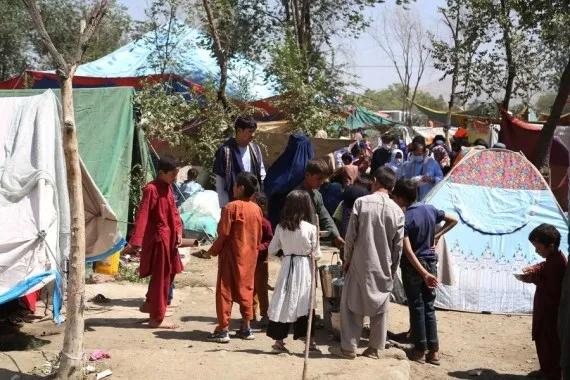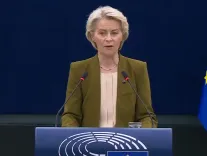Is Hunger on the Rise in Afghanistan? WFP Calls for Urgent Aid

Synopsis
Key Takeaways
- Hunger in Afghanistan is sharply increasing, affecting millions.
- Urgent funding is required to deliver aid before winter.
- Children are particularly impacted by rising malnutrition rates.
- The situation is worsened by political and aid restrictions.
- Immediate international support is needed to prevent long-term consequences.
Kabul, Sep 19 (NationPress) The World Food Programme (WFP) has issued a grave warning regarding the escalating levels of hunger in Afghanistan, emphasizing the urgent need for funding to deliver essential aid prior to the winter months that will cut off vulnerable communities across the country.
The WFP has raised alarms about the intensifying hunger crisis in Afghanistan, indicating that millions of individuals are facing increasing insecurity as ongoing crises deplete resources, according to Afghanistan's prominent news outlet, Khaama Press.
On September 18, the agency highlighted that immediate funding is necessary to ensure food supply reaches remote villages before winter isolates them, leaving families without crucial necessities.
Rania Dagash Kamara, WFP's Deputy Executive Director, stated that the needs are "vast and immediate," warning that without new funding, millions of additional Afghans could be driven into extreme hunger in the near future.
The situation has been worsened by the United Nations High Commissioner for Refugees (UNHCR) suspending cash assistance programs nationwide after September 9 due to restrictions placed on female staff.
Disruptions, harsh climatic conditions, and diminishing aid resources have left thousands of vulnerable households without support at this critical juncture. UNICEF has expressed concern that over 9.5 million people in Afghanistan are experiencing severe food insecurity, with 1.6 million facing emergency-level conditions.
Children are particularly affected, with rising malnutrition rates necessitating urgent international intervention to prevent long-term repercussions.
The warnings underscore how political strife, insufficient funding, and aid limitations are aggravating Afghanistan's humanitarian emergency. The situation risks further deterioration without global assistance. Humanitarian organizations continue to implore donors to increase funding and urge authorities to remove restrictions, enabling lifesaving aid to reach those in dire need.
Recently, the United Nations reported that over 4.7 million women and children in Afghanistan urgently require treatment for malnutrition, as drought, economic collapse, and reduced aid contribute to the growing humanitarian crisis.
UN spokesperson Stephane Dujarric cautioned that the food security status in Afghanistan remains alarming, stating that one in four Afghans faces severe food insecurity, with children being the most affected, according to Khaama Press.
The World Food Programme (WFP) has indicated that Afghanistan is witnessing its highest levels of acute malnutrition in 2025. Many affected children have been admitted for urgent care at Kabul's Indira Gandhi hospital.
The United Nations has revealed that over 4.7 million women and children require immediate assistance. Aid officials have warned that escalating malnutrition could lead to widespread fatalities and long-term health issues if timely measures are not implemented.








